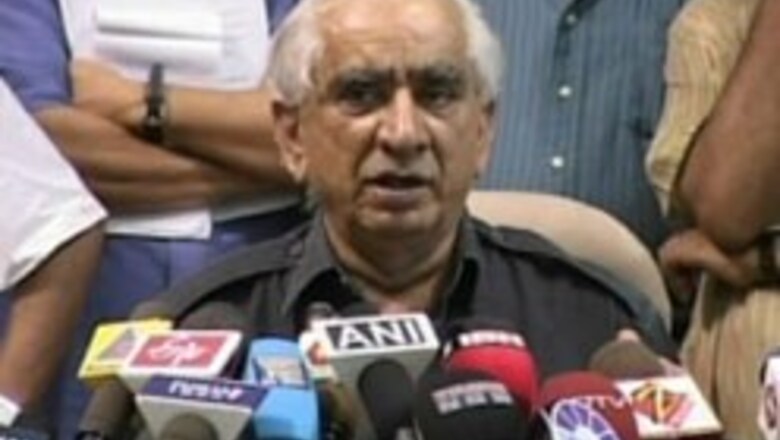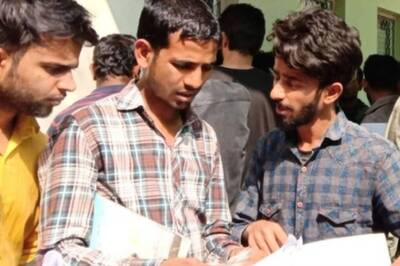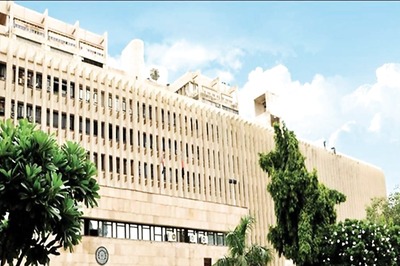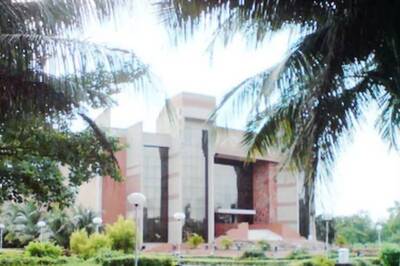
views
New Delhi: The belated discovery of a 'mole' in Narasimha Rao's PMO may have done very little to help India's security interests, but it has definitely helped Jaswant Singh's book to fly off the shelves in a record time.
A Call To Honour: In Service Of Emergent India has already become a bestseller with thousands of copies sold since it hit the bookstands nearly a week ago. The is set to hit its fourth print run.
Create a scare, sell your book and then wriggle out of the controversy — many authors have done that before and Singh seems to have copied their plot.
In a lighter vein, Singh says: "Half of my royalties will go to Chidambaram. Authors' royalties should be exempted from taxes." But he has been quick to wriggle himself out of the mole-in-PMO controversy, saying he doesn’t want to sensationalise the issue.
"I never wanted to sensationalise. Sometimes I feel I should not have written it," Singh now says.
So the nation doesn’t yet know who the mole was in Rao's office. His latest statement was that he didn’t know whether the mole was a “civil or uncivil servant”.
National Security Advisor M K Narayanan has called Jaswan't allegation "outrageous".
Neither has Jaswant revealed whether in Khandhar he paid hijackers of an Indian Airlines flight Rs 900 crore and explosives. He claims the hijackers made these demands.
"This book has come from the innards of my being. It doesn't fit into a fixed mould. It's getting attention for all the wrong reasons," says Singh.
Stellar launch
At the formal launch of the book in Delhi, Singh turned philosophical. "Delhi is the ultimate mayanagri (the city of illusion). Everybody who comes here thinks he owns Delhi. But Delhi doesn't belong to anyone," he said.
PAGE_BREAK
"Peace left us in 1947. There is no alternative to peace," he said in a reference to the India-Pakistan relations.
Commending the author for his fine historical account of contemporary India, former Reserve Bank of India governor Bimal Jalan said he had never seen a time like this in the life of the country as the present moment.
"Everybody expects so much from India these days," Jalan said, adding that even as India's stature is rising in the world, one should not forget sharpening socio-economic inequalities sparked by high growth rates.
Revisiting the diplomatic scene in 1998, Naresh Chandra, who was India's ambassador to the US at the time, said: "What a difficult Washington it was. The trick then was to play the ball till May 13 - the day India exploded the nuclear device - and not let the US push sanctions on us."
Chandra also sought to make light of the so-called American pressure and bullying methods that continue to haunt a section of the Indian establishment. "It's a silly notion that the US pushes us around or arm-twists us, I never felt any pressure when I was there."
It was indeed a call to honour. And as speaker after speaker waxed eloquent on Jaswant Singh's runaway bestseller, the mysterious mole that hogged media headlines vanished and the spotlight shifted to this genre-bending book that melds autobiography with defining moments in contemporary Indian history.
In his book, Jaswant Singh offers a privileged insider's account of key moments in India's recent history -- Pokhran II nuclear tests in 1998, the terrorists' hijack of IC814 to Kandahar, the Kargil conflict, the India-Pakistan Agra summit -- and weaves his own personal and political evolution into this evocative account.
Trade circles say the book, in the market for a week, is on course to selling 50,000 copies. That will put it on a par with the last non-fiction bestseller, President APJ Abdul Kalam's Ignited Minds.
In India, any book that sells 5,000 copies is a success.
(With inputs from IANS)

















Comments
0 comment